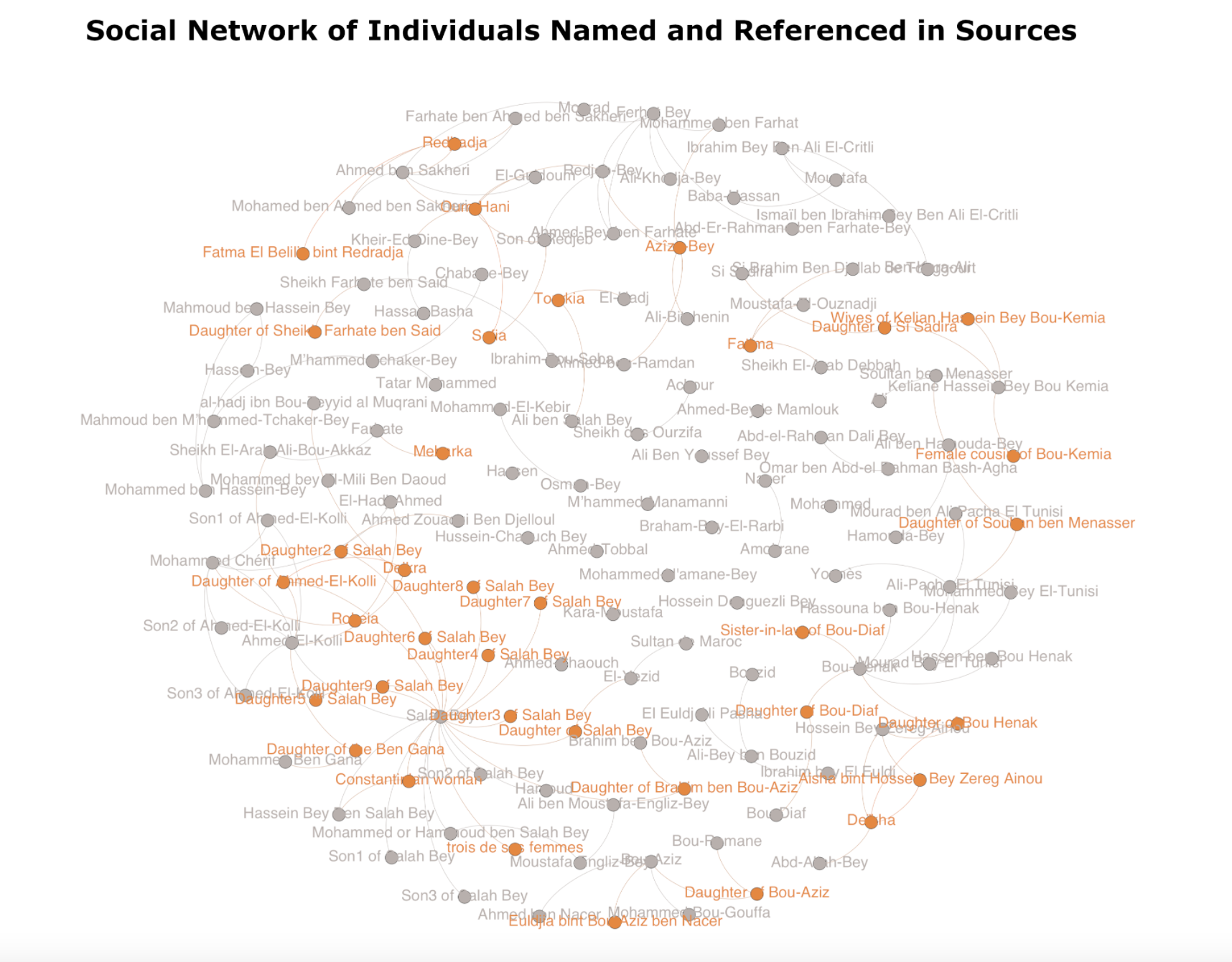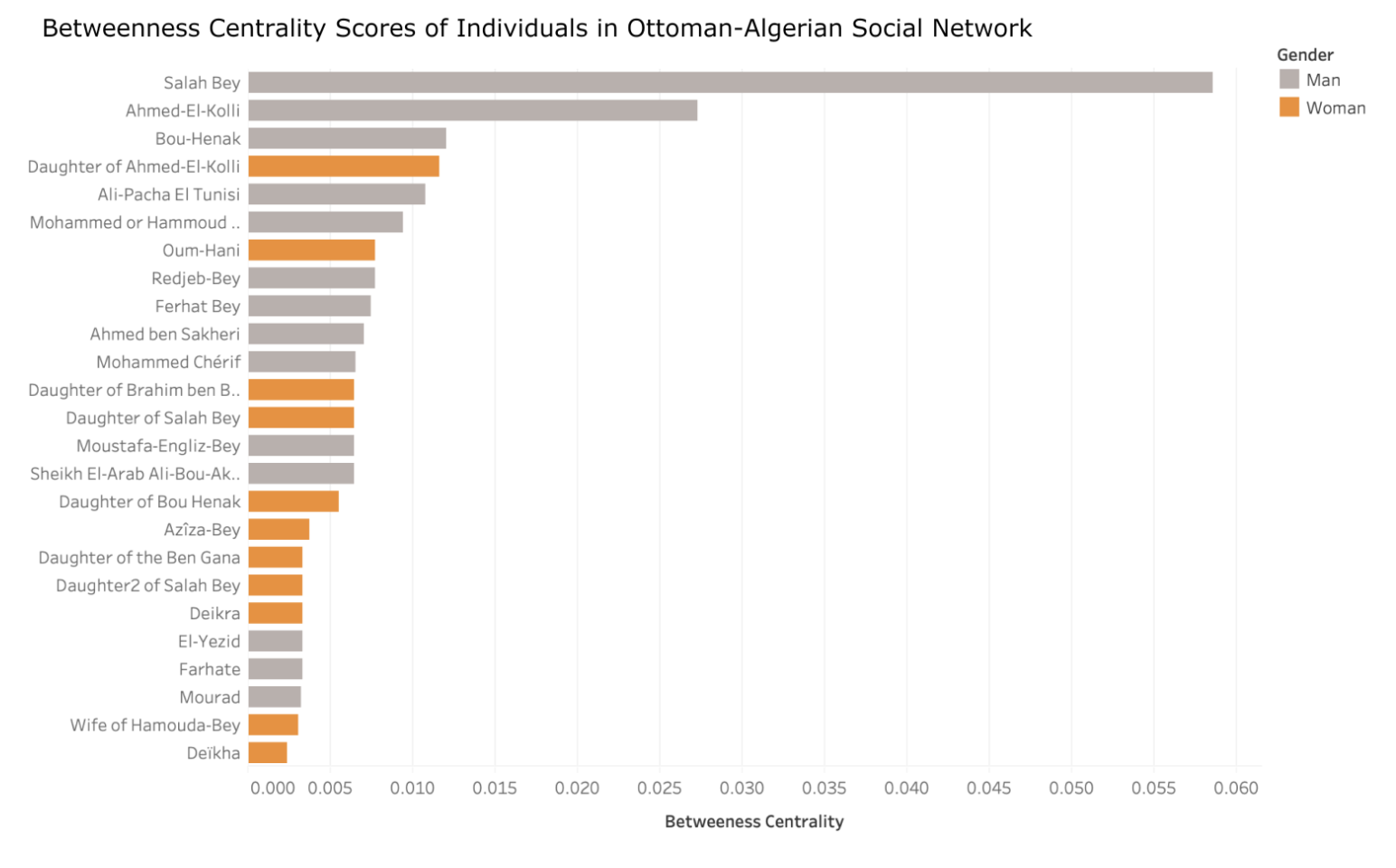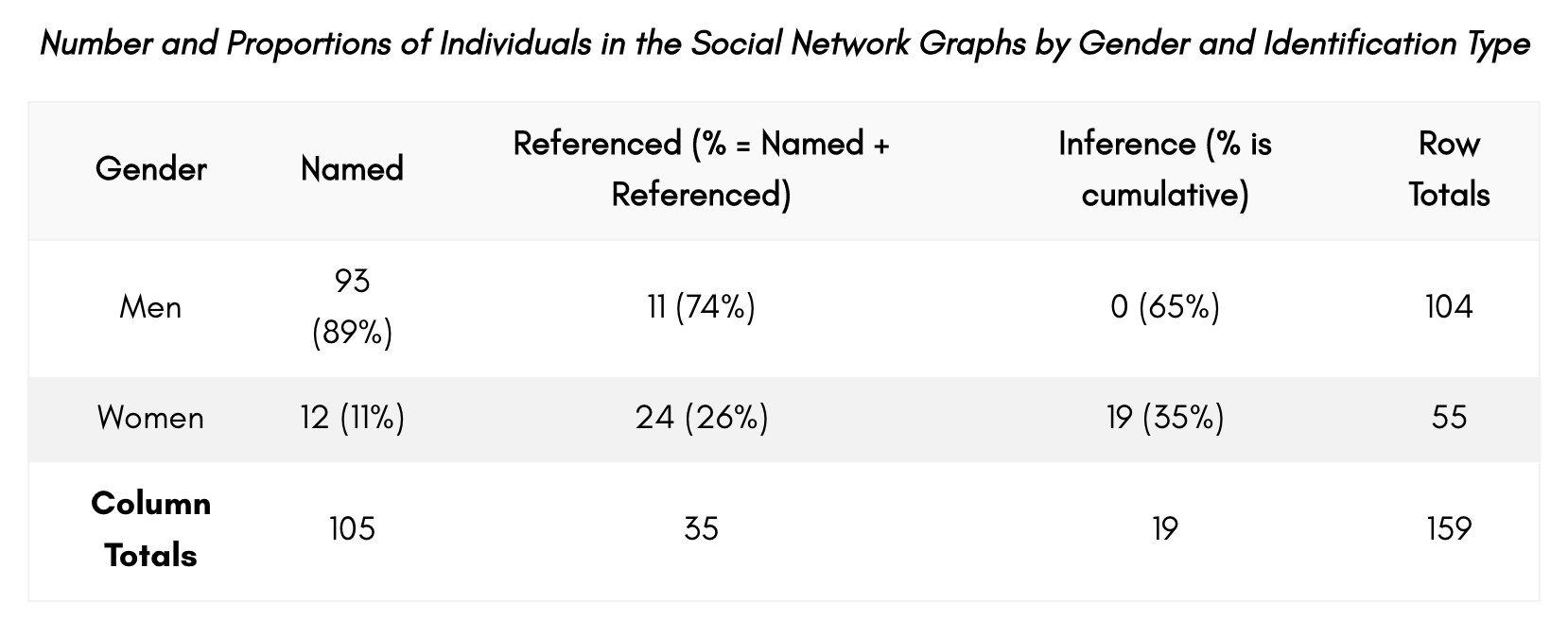Review
Silent No More: Women as Significant Political Intermediaries in Ottoman Algeria by Ashley Sanders
Hello all! This is my review of Current Research in Digital History! The project that we will be focusing on was written by Ashley Sanders and published October 28, 2020, and can be located here!
The argument presented by Sanders in this Digital History Project (DH Project) was that local women were the strongest link that connected Algeria to the Ottoman Empire from the mid-sixteenth century to the nineteenth century. Sanders suggested that this evidence was compiled from quantitative social network analysis such as centrality scores and that over this three-hundred-year period there is a tangible shift around the mid-seventeenth century where Ottoman officials married into local families to establish legitimacy.
The data that Sanders collected in this DH Project consisted of a range of sources, from memoirs to journals discussing marriage politics (intermarriage, strategic marriage, dynastic marriage), social mobility, women, gender, kings, and building nations. All of these sources can be located at the bottom of this DH Project under “Bibliography.” A lot of this information came from French and Arabic governors, travel narratives, and consular records.
To express the information, Sanders relies on 3 types of graphs: Semantic Graphs (connecting the names of people like a web),

Bar Graphs (colored-coded to identify how women were connected to men),

and data sheets (presenting the ratios of men to women in columns with specializations from the name, referenced, and inference). Sanders also relied on one family tree. There were no findings on which programs were used to create these graphs, I will update if I can figure that out.

The funding for this DH project is part of the Roy Rosenzweig Center for History and New Media (RRCHNM) Director’s Fund through George Mason University. You can donate to this organization here.
Sander’s findings in this DH Project that suggest the importance of Algerian women in connecting Algeria to the Ottoman empire are expansion records. The women had to be inferred in these records, as the records consisted of father-son relations, and mothers are needed to make sons. There were also collections of people that were referenced, but not inferred. By adding the referenced numbers to the overall list, Sanders argues that the social networking and visibility of local Algerian women are more prominent.
Kinship in social networking was another example of the findings that Sanders argued. Ottoman administrators and governors married local Algerian women according to Sanders, solidifying the men’s pursuit for power and pride. These women in turn were listed in top rankings of centrality scores. Consent of these women was also imperative. In a situation where a woman did not consent to marriage by a man, a man in a position of power, such as a governor, could be killed if his proposal was rejected.
Finally, through Algerian women marrying administrators of the Ottoman Empire, offspring of these marriages would become Ottoman-Algerian, which in turn allowed for the connection of Algeria to the Ottoman Empire to strengthen overall. This would not have been possible without women.
I think that this DH Project was very interesting to look at. It took into account both limited information that existed and presented an argument around the idea about inference and reference as opposed to having all the direct material needed at hand. It also presented how the findings can come from a variety of sources that people don’t normally think about. One thing I am concerned with is that a translation will be needed for the information in different languages, or a translator, as anyone who is not fluent in those languages might rely on more unreliable translations while trying to extract information, so we have to remain critical of the sources. Other than this concern, I am indeed more interested in the subject of this project!